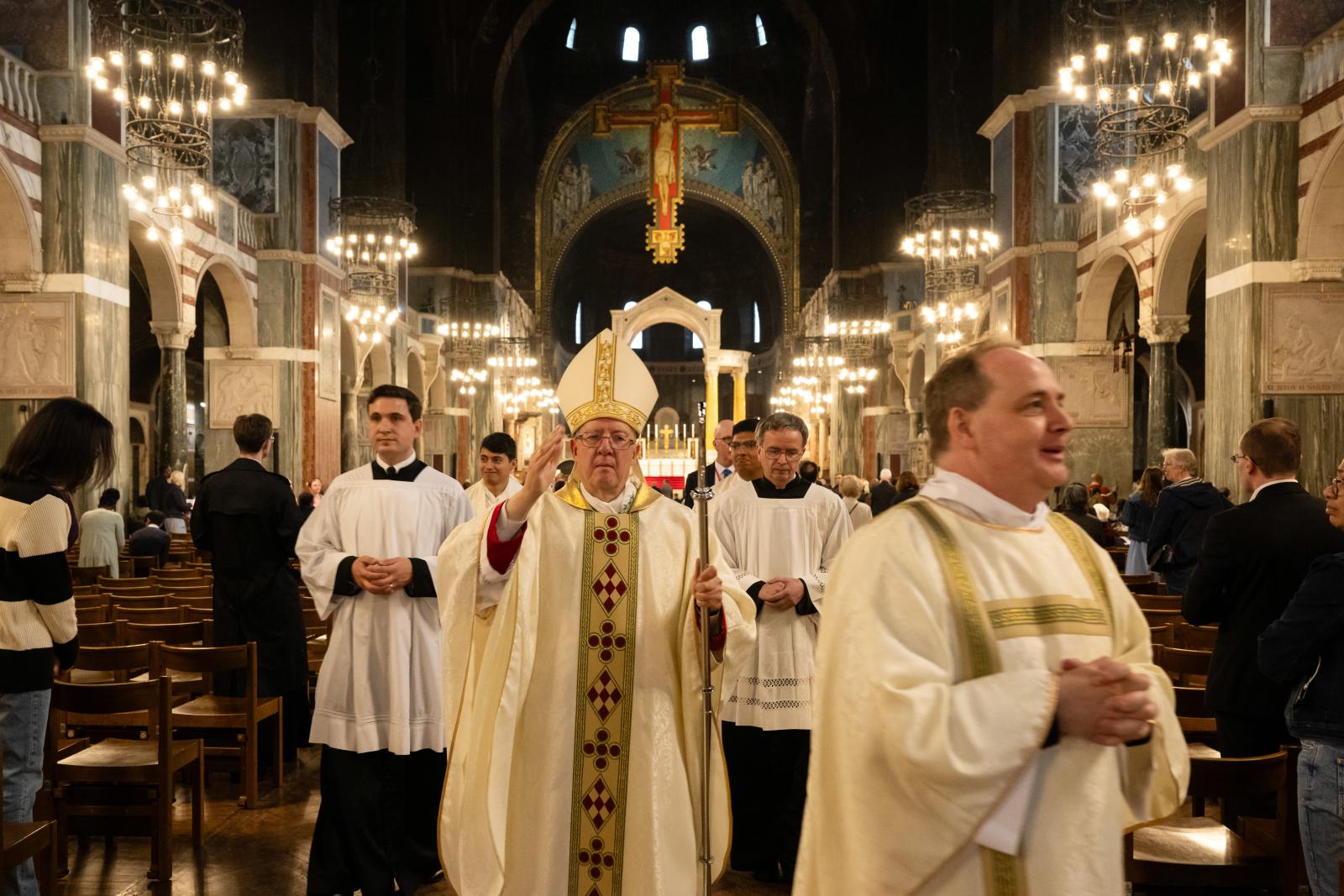Given on the feast of St Francis Assisi, 4th October 2024, for the annual Mass of the St Francis Leprosy Guild.
Welcome
This evening, I welcome members of the St. Francis Leprosy Guild to the Cathedral for their annual Mass.
We give thanks for their prayer and support to those living with leprosy in over 100 counties today. An estimated 200,000 people are diagnosed each year with leprosy, usually after living with its bacterial infection for many years.
We pray for those who suffer physically and also by the stigma and prejudice associated with leprosy.
Homily
St Francis knew the mercy of God and day by day began to see more clearly the mystery of God who is active in his creation. St Bonaventure writes, ‘In these latter days the grace of God our Savior has appeared in his servant Francis to all who are truly humble and lovers of holy poverty. In him they can venerate God's superabundant mercy, and be taught by his example to live in conformity with Christ, and to thirst after blessed hope with unflagging desire.’ This experience of God’s mercy led St Francis to grow into a person like Christ, often called ‘Alter Christus’. The mercy of God led him to give away his clothes, to abandon his inheritance and title, and be close to the poorest in Assisi.
God’s mercy led St Francis to become that gift of compassion and mercy to others, ready to crossing the threshold from the world of the rich and powerful to that of the poor and fragile. After staying with the monks in Gubbio, St Francis went and lived among the lepers who lived outside the town because they were feared. Thomas of Celano writes, ‘Then the holy lover of profound humility moved to the lepers and stayed with them. For God’s sake, he served all of them with great love. He washed all the filth from them, and even cleaned out the pus of their sores, just as he said in his Testament: ‘When I was in sin, it seemed too bitter for me to see lepers, and the Lord led me among them and I showed mercy to them.’ On another occasion, he met and kissed a leper. The leper then vanished. Only by crossing thresholds into the bitter world of suffering and sickness did St Francis discover what was sweet and brought fulfilment. He entered into the wounds of Christ’s Body to be like Christ. He followed the example of Jesus’ who touched and healed the lepers and thereby brought them from isolation to restoration in the community.
The gift of God’s mercy leads St Francis to bless God and sing ever more confidently in praise of all God’s creation, brother sun, sister moon, brother wind, sister water, brother fire, sister mother earth, and sister bodily death. Death is not to be feared by those who do God’s will and avoid mortal sin. The second death (the first being baptism) shall do them no harm.
In the first reading, we reach the end of Job’s questioning and searching. His friends have not given him comfort and often answered their own questions not Job’s. Job tires of their words and presence. Then with the suddenness of a trumpet blast, out of the tempest, God gives Job his answer and speaks of the mystery of God’s works. Job responds with humility and knows that he cannot understand the mystery of God and the mystery of suffering. Suffering and death are not necessarily a consequence of personal sin but part of the human condition because of the Fall. He is reduced to silence, He says, ‘My words have been frivolous: what can I reply? I had better lay my finger on my lips. I have spoken once... I will not speak again; more than once... I will add nothing.’
In today’s gospel, Jesus gives a harsh warning to the towns of Corazin, Bethsaida and Capernaum: Repent and believe to me. Be converted to me. Build God’s Kingdom, act with righteousness and feed the hungry, cure the sick, give water to the thirsty and visit the prisoner. If the people of the Phoenician cities of Tyre and Sidon can repent, surely the people of the Jewish towns can repent and follow Jesus. Jesus warns of his rejection and the rejection of his death and resurrection in the Acts of the Apostles.
The gift of God’s Mercy is an invitation to conversion. The climax of St Francis’ journey of conversion to love and be configured to Christ was the gift of the stigmata at La Verna. Bearing in his Body, the wounds of Christ, he fully identified with the suffering Christ who gave his life as a ransom for others.
May the prayer and example of St. Francis help us praise God, be converted and care for the poorest, the weakest and the gift of God’s creation for all things are interconnected.
May we be ready walk with those who carry their cross on a daily basis.
We ask the intercession of St Francis the Peacemaker for peace in the Middle East: Lord, make us instruments of your peace.
